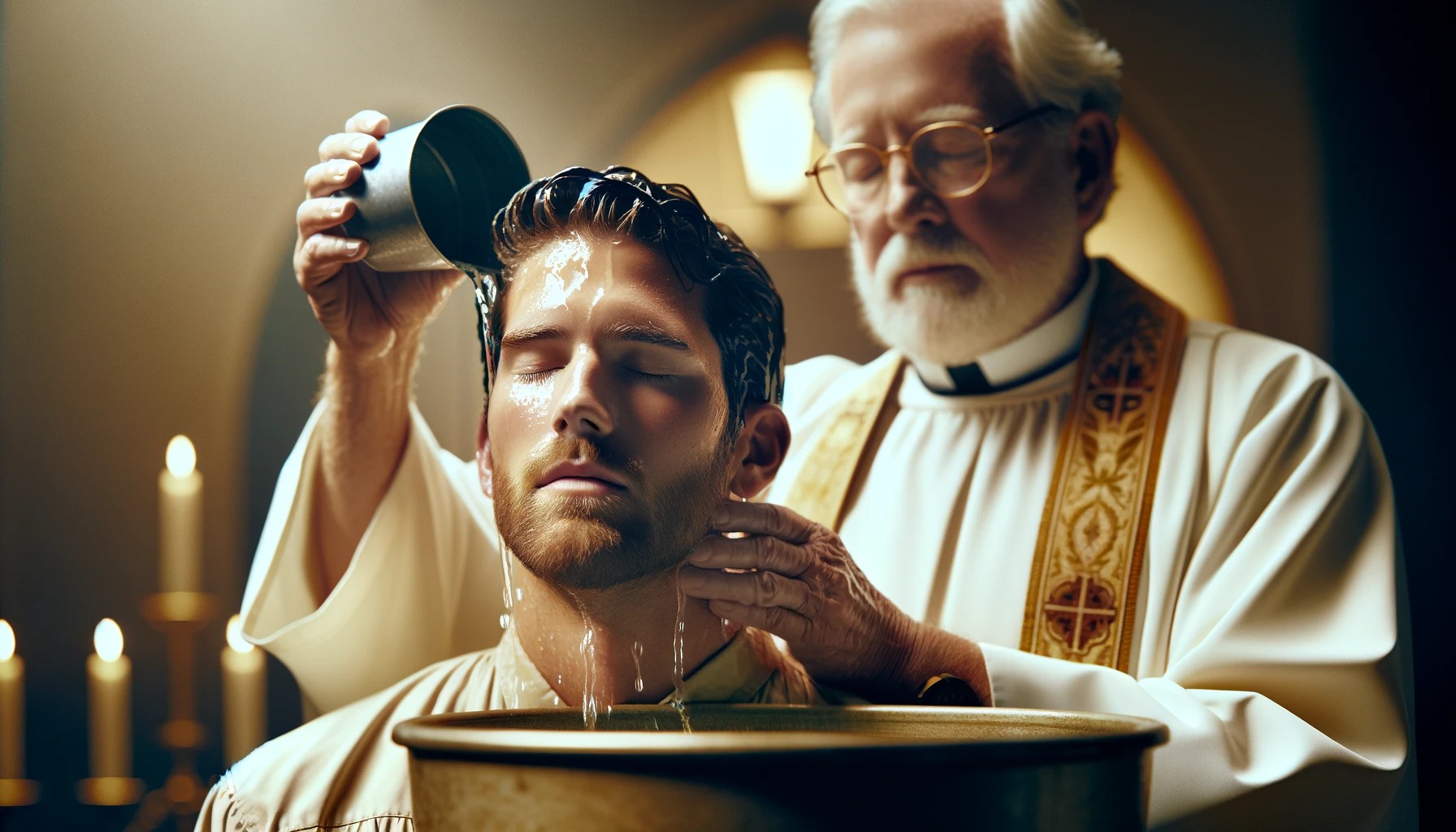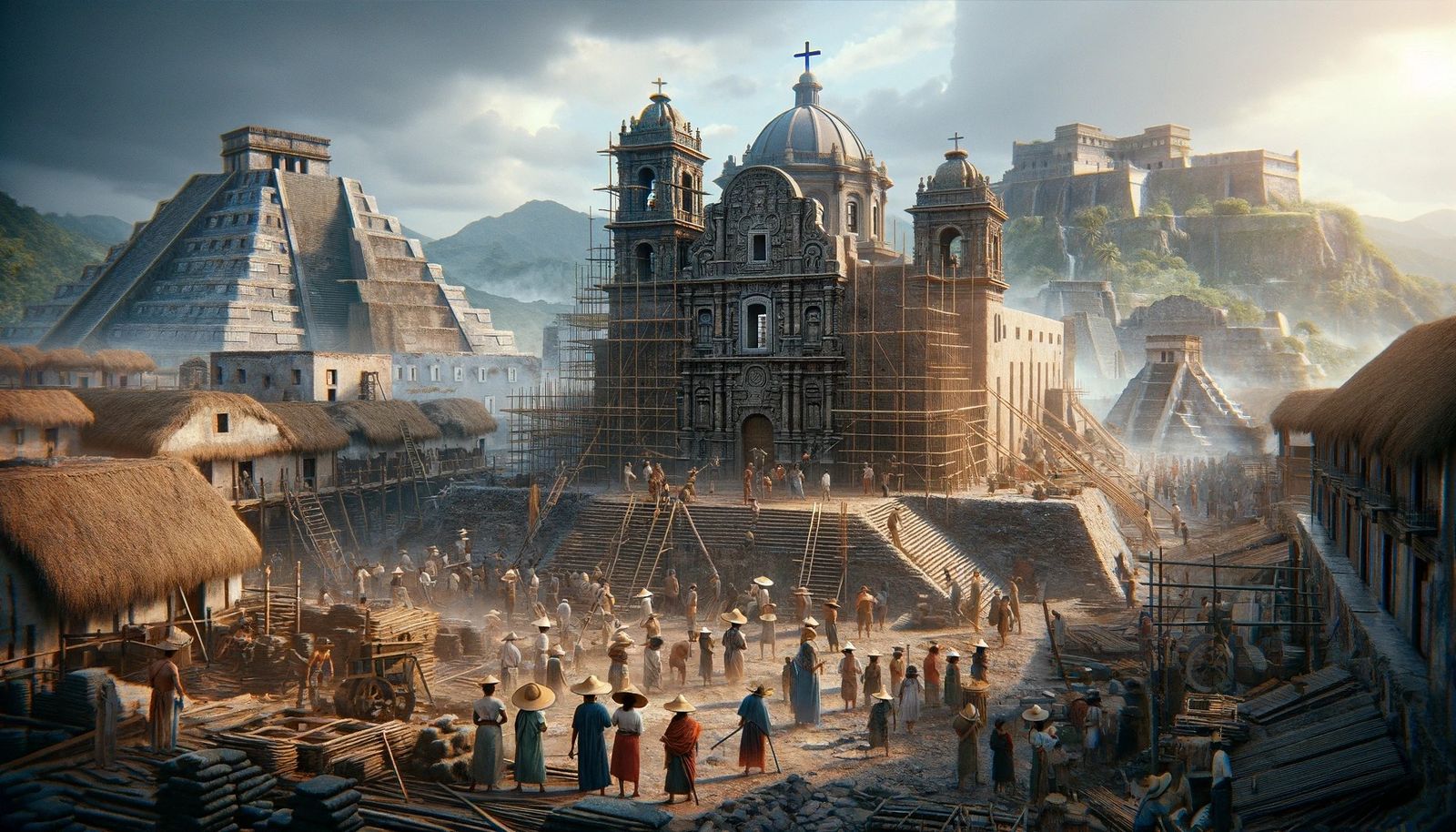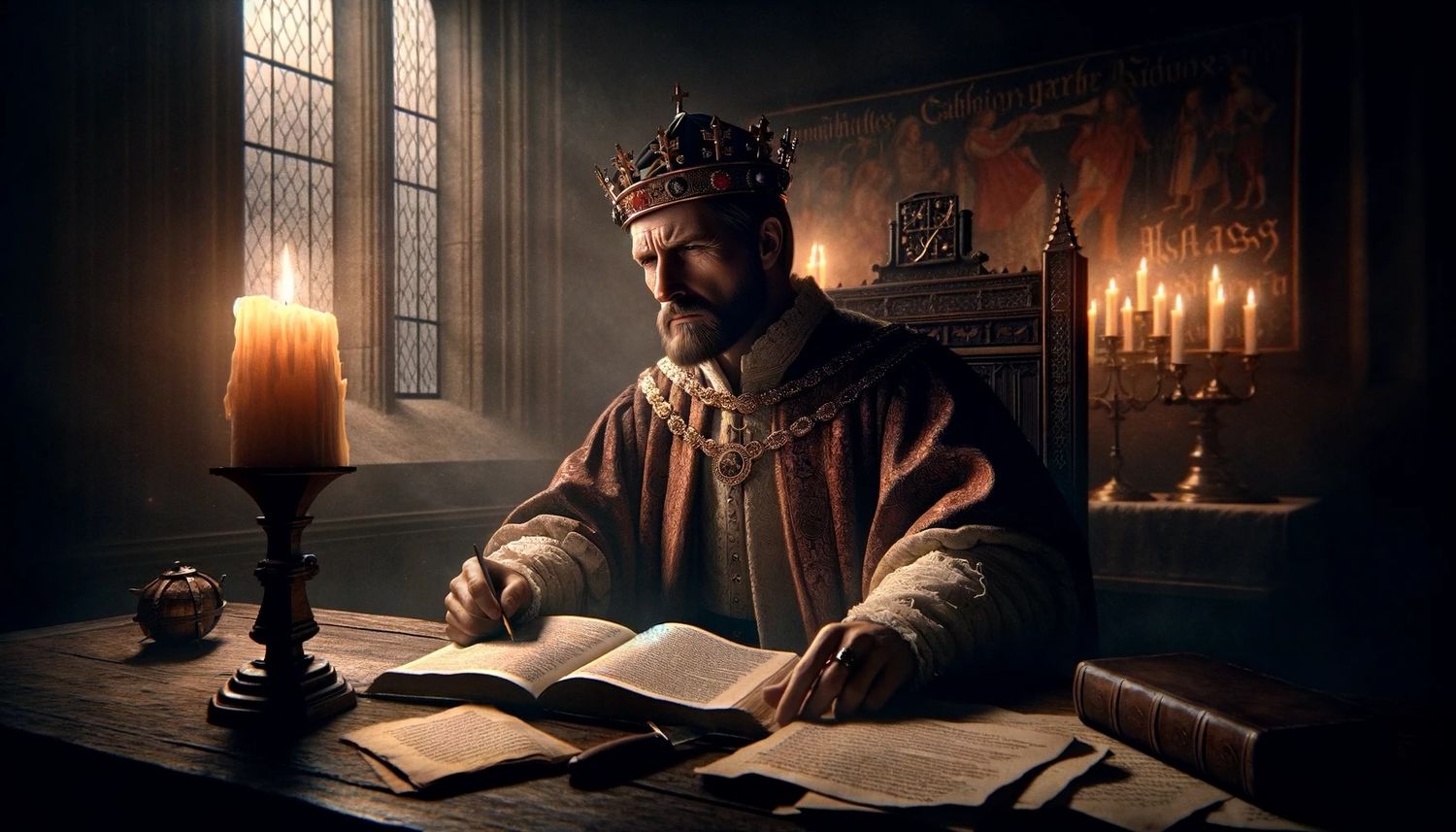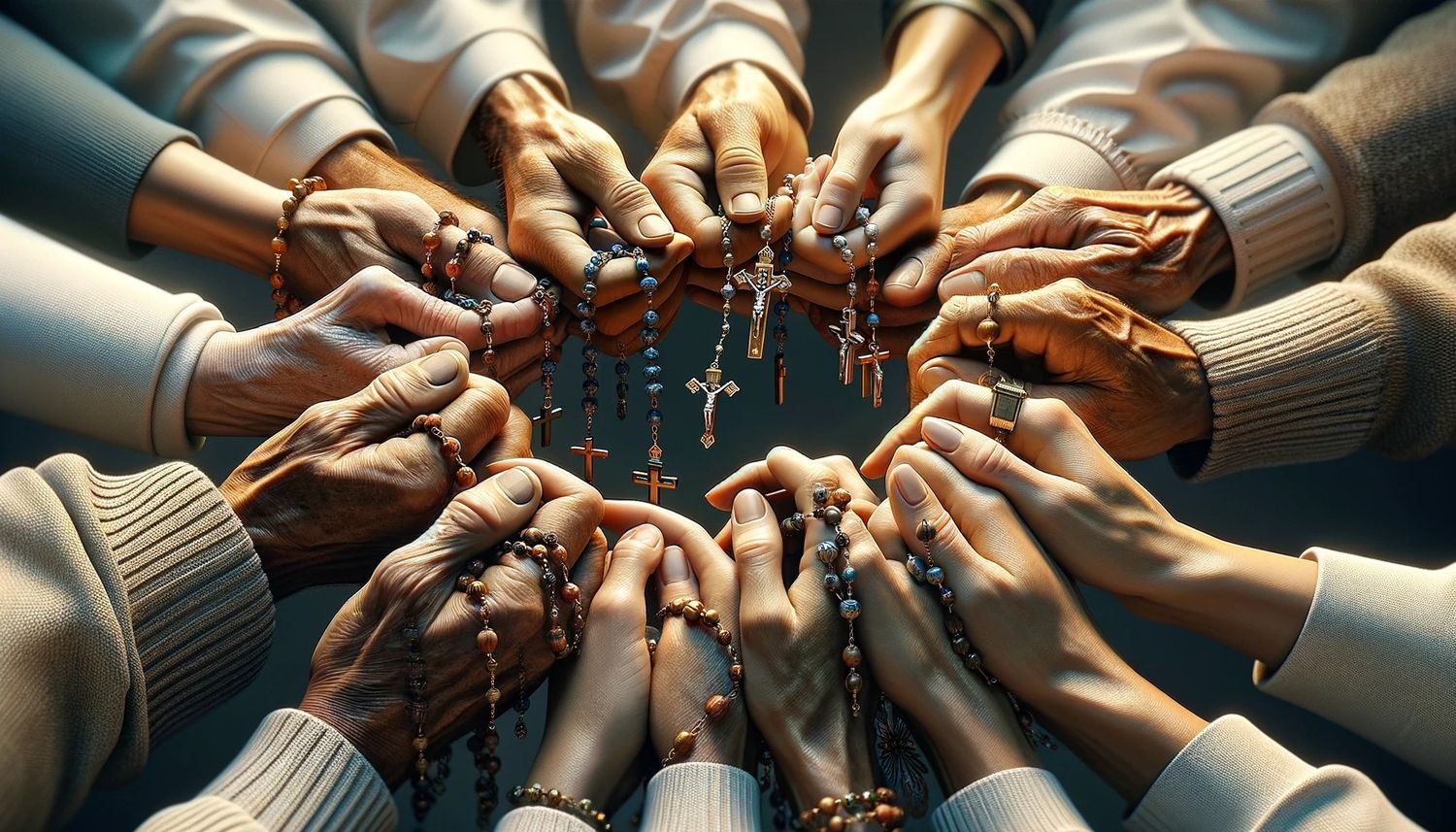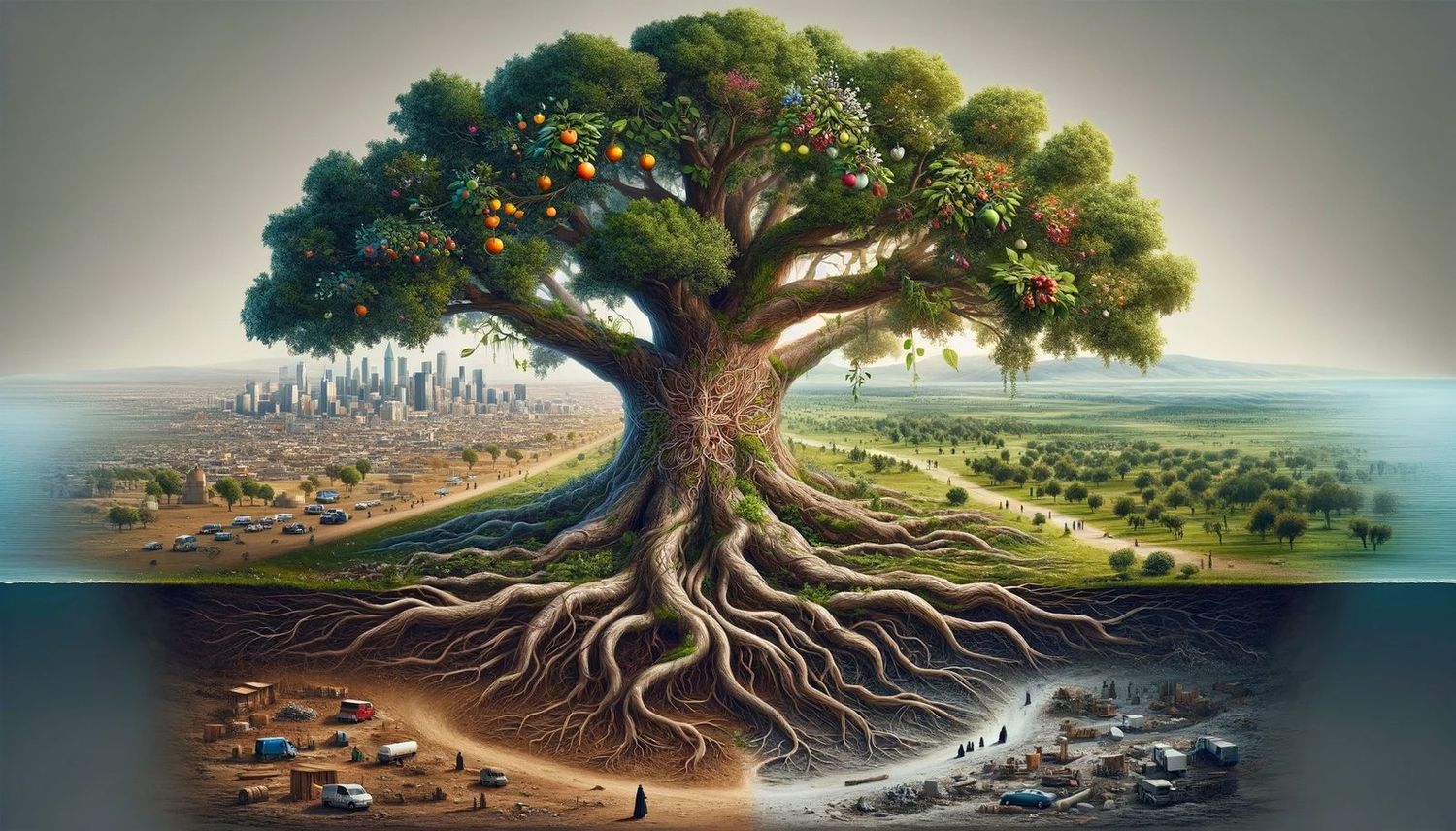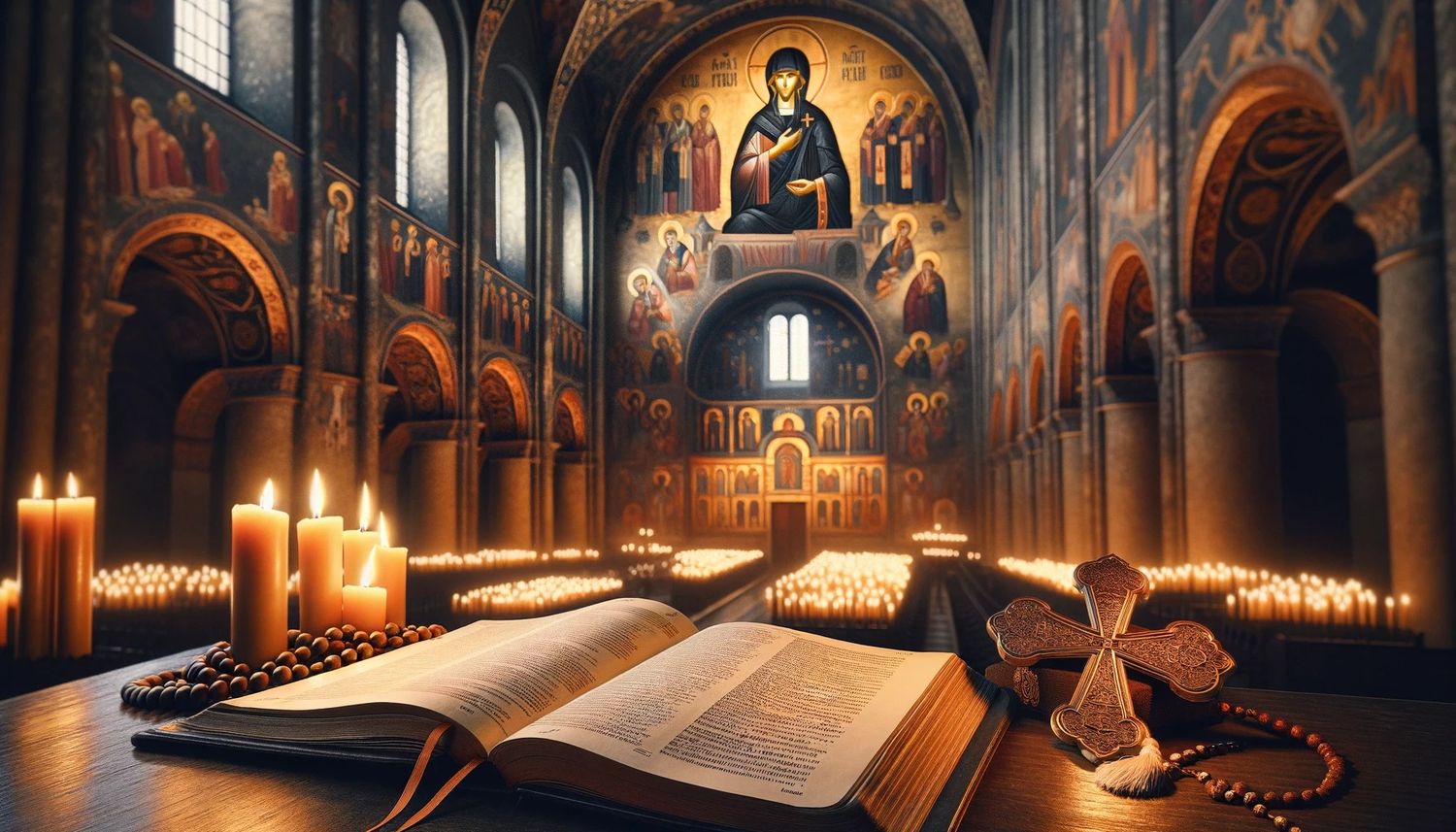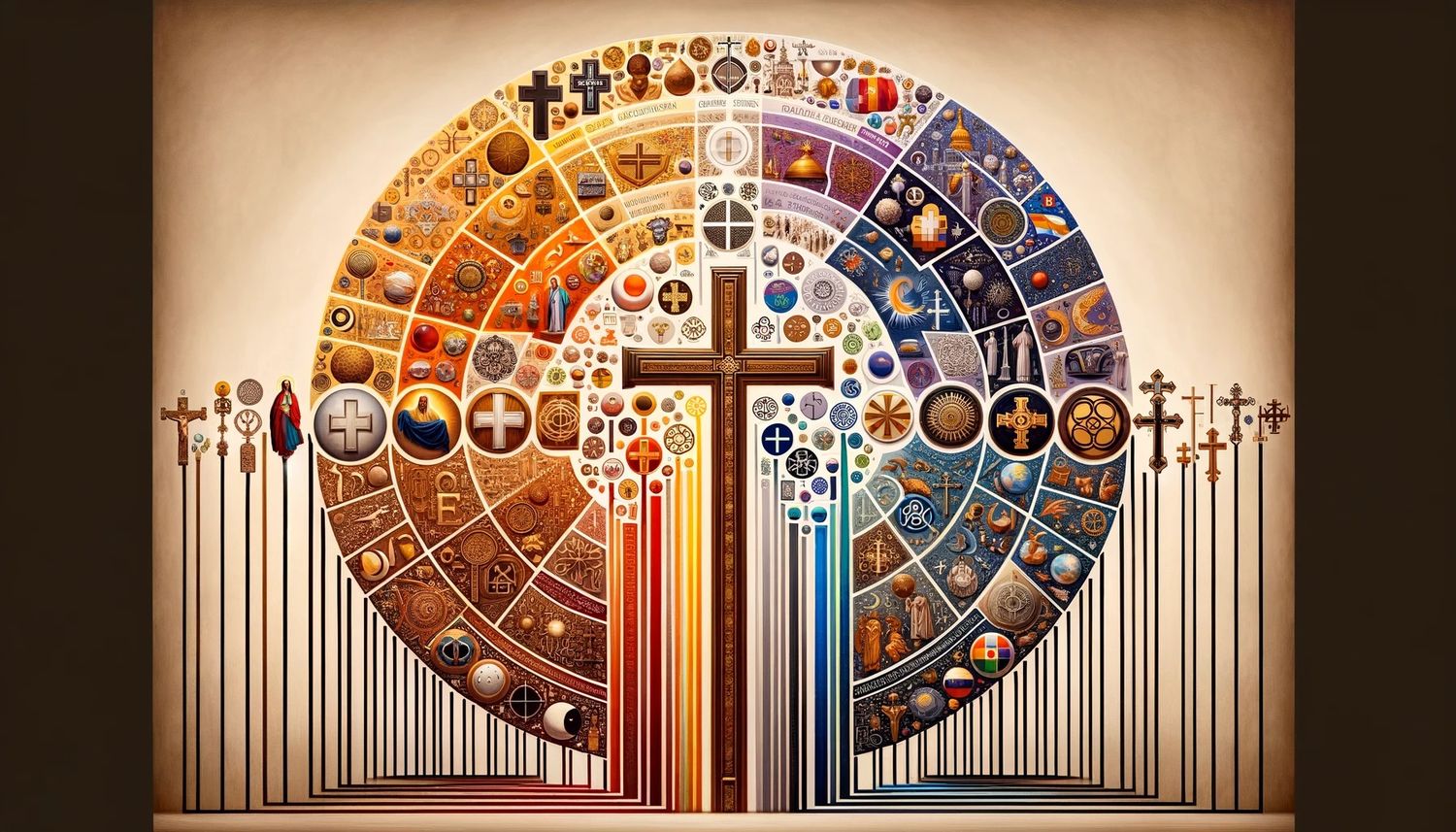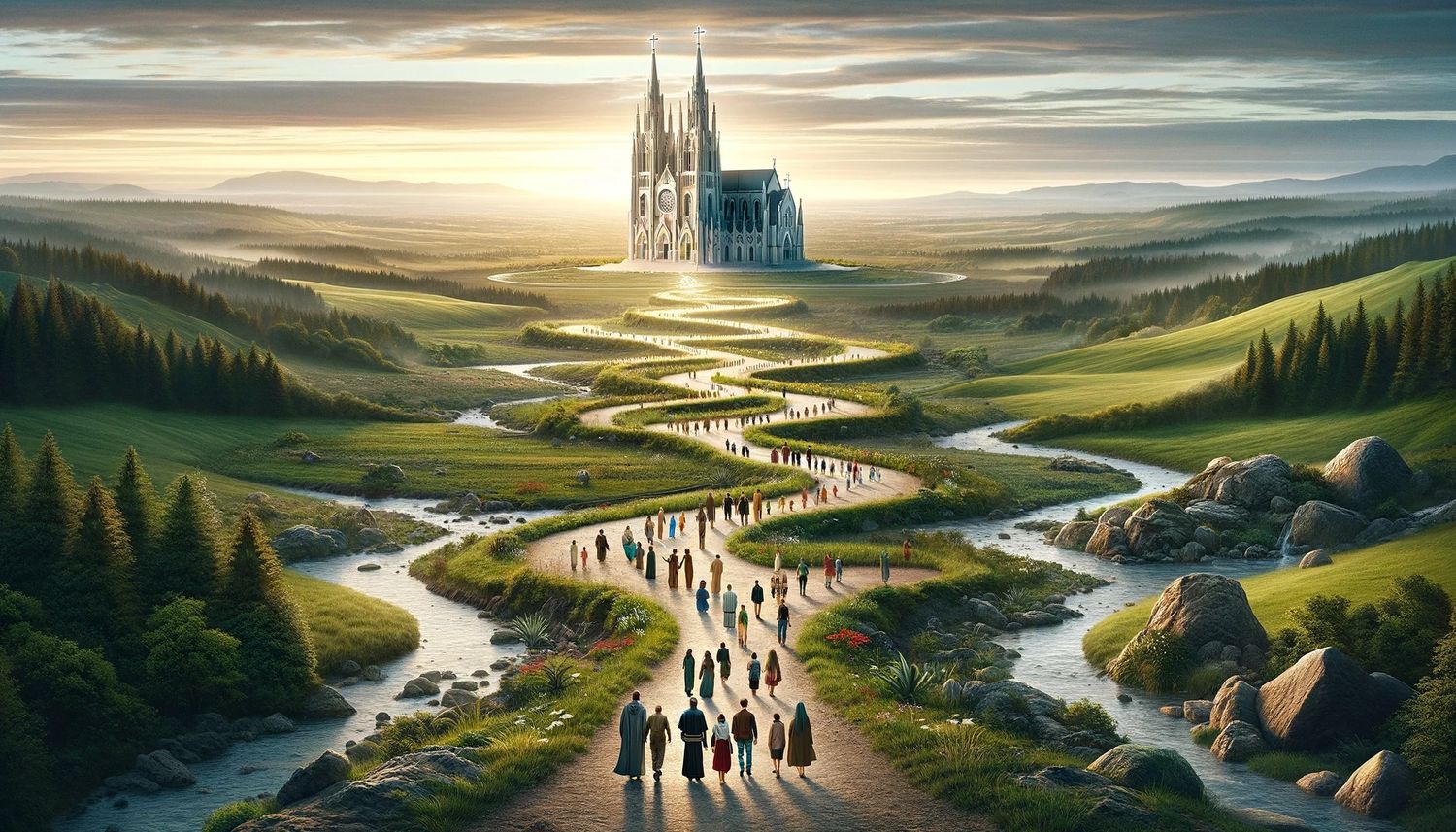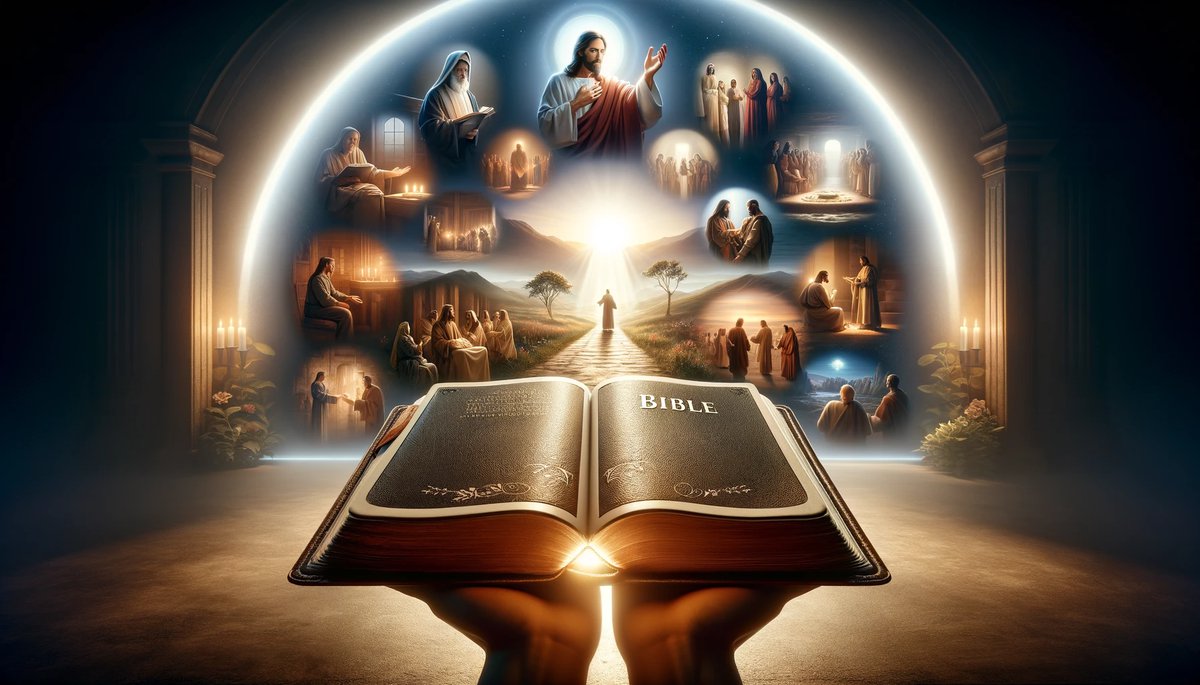Home>Theology and Spirituality>Why Do Evangelicals Convert To Catholicism


Theology and Spirituality
Why Do Evangelicals Convert To Catholicism
Published: February 18, 2024
Ericka Andersen, an editor at Christian.net, expertly merges digital strategy with content creation, focusing on faith and societal issues. Her communication skills enhance the platform's engaging narratives, fostering meaningful dialogue on belief's impact on society.
Discover the reasons behind the conversion of Evangelicals to Catholicism and explore the theological and spiritual aspects of this transition. Gain insights into the journey and motivations of these individuals.
(Many of the links in this article redirect to a specific reviewed product. Your purchase of these products through affiliate links helps to generate commission for Christian.net, at no extra cost. Learn more)
Table of Contents
Introduction
The conversion of individuals from evangelical Protestantism to Catholicism is a phenomenon that has garnered significant attention and interest in religious circles. This spiritual journey often involves a profound shift in theological perspectives, religious practices, and personal beliefs. Understanding the reasons behind this conversion is a complex and multifaceted endeavor, encompassing historical, theological, philosophical, social, and personal dimensions.
The decision to embrace Catholicism within the context of evangelical backgrounds represents a transformative and deeply personal process. It involves a reevaluation of deeply held convictions, a reexamination of doctrinal differences, and a reconnection with the historical roots of Christianity. This journey is not merely a change of religious affiliation; it is a profound spiritual and intellectual odyssey that shapes the identity and worldview of the individuals involved.
The exploration of evangelical-to-Catholic conversion offers valuable insights into the diverse tapestry of Christian faith traditions. It sheds light on the intricate interplay of theological interpretations, spiritual yearnings, and communal dynamics within the broader Christian landscape. By delving into the historical, theological, and personal dimensions of this conversion, we can gain a deeper appreciation for the complexities and nuances of religious identity and spiritual transformation.
In the subsequent sections, we will embark on a comprehensive exploration of the factors that contribute to the conversion of individuals from evangelical Protestantism to Catholicism. By examining the historical background, theological and philosophical considerations, social and cultural influences, and personal testimonies of evangelical-Catholic converts, we aim to unravel the intricate tapestry of motivations and experiences that underpin this profound spiritual journey. Through this exploration, we seek to foster a deeper understanding of the rich diversity and profound spiritual quests that characterize the Christian faith.
Read more: Why Convert To Catholicism
Historical Background of Evangelical-Catholic Conversion
The historical backdrop of evangelical-Catholic conversion is marked by a complex interplay of theological, cultural, and ecclesiastical developments. The roots of evangelical Protestantism trace back to the 16th-century Reformation, a period characterized by fervent theological debates, ecclesiastical schisms, and the emergence of diverse Protestant denominations. This era witnessed the rise of reformers such as Martin Luther, John Calvin, and Huldrych Zwingli, who sought to challenge perceived doctrinal and institutional corruptions within the Roman Catholic Church.
The theological tensions that permeated the Reformation era gave birth to distinct theological emphases within Protestantism, including the primacy of scripture, salvation by faith alone, and the priesthood of all believers. These theological convictions became foundational pillars of evangelical Protestant identity, shaping the religious ethos and doctrinal distinctives of evangelical communities.
In the centuries following the Reformation, evangelical Protestantism flourished and diversified, giving rise to a myriad of denominational expressions, theological traditions, and global missionary endeavors. The evangelical movement became synonymous with fervent evangelism, vibrant worship practices, and a strong emphasis on personal conversion and discipleship.
Against this historical backdrop, the phenomenon of evangelical-Catholic conversion represents a significant and intriguing development. The historical tensions and theological divergences that once defined the relationship between evangelical Protestantism and Catholicism have undergone nuanced shifts in the contemporary era. The Second Vatican Council (1962-1965) marked a pivotal moment in Catholic history, fostering a spirit of ecumenical dialogue, theological renewal, and a more open engagement with other Christian traditions, including evangelicalism.
The evolving dynamics of interfaith dialogue, theological exchange, and shared social concerns have contributed to a climate in which evangelical-Catholic rapprochement has become increasingly plausible. This historical trajectory has set the stage for a growing number of evangelical individuals and communities to explore the theological richness, liturgical beauty, and historical continuity of the Catholic tradition, leading to a notable trend of evangelical-Catholic conversion in recent decades.
The historical background of evangelical-Catholic conversion thus reflects a complex interplay of historical, theological, and ecclesiastical dynamics, underscoring the evolving contours of Christian identity and religious affiliation in the modern era. This historical narrative provides a rich tapestry against which the contemporary phenomenon of evangelical-Catholic conversion can be understood and appreciated, offering valuable insights into the intricate dynamics of religious identity and spiritual pilgrimage.
Theological and Philosophical Reasons for Conversion
The theological and philosophical underpinnings of evangelical-Catholic conversion encompass a rich tapestry of doctrinal, spiritual, and intellectual considerations. At the heart of this profound transformation lies a reevaluation of theological paradigms, a rediscovery of historical Christian thought, and a deep engagement with the sacramental and liturgical dimensions of the Catholic faith.
One pivotal theological consideration that often resonates with evangelical individuals contemplating conversion to Catholicism is the concept of authority. Within evangelical Protestantism, the primacy of scripture and the autonomy of individual interpretation hold central positions. However, the Catholic Church's emphasis on apostolic succession, the magisterium, and the living tradition as authoritative sources of Christian doctrine presents a compelling alternative paradigm. This shift in theological authority can be a catalyst for evangelical individuals seeking a more historically rooted and communal expression of faith.
Furthermore, the sacramental theology of Catholicism, particularly the Eucharist, holds profound significance for many evangelical-Catholic converts. The sacramental worldview of Catholicism, with its emphasis on the real presence of Christ in the Eucharist and the transformative power of the sacraments, offers a compelling vision of embodied spirituality and divine encounter. This sacramental ethos stands in contrast to the symbolic understanding of ordinances prevalent in many evangelical traditions, prompting individuals to reexamine their theological perspectives on the nature of the church, the sacraments, and the spiritual life.
Philosophically, the intellectual depth and historical continuity of Catholic theology often resonate with evangelical individuals drawn to the richness of Christian intellectual tradition. The exploration of classical Christian thinkers such as Augustine, Aquinas, and the mystical tradition offers a profound intellectual and spiritual journey for those seeking a robust theological framework and a deeper engagement with the historical roots of Christian thought.
Moreover, the aesthetic and liturgical dimensions of Catholic worship, with its emphasis on sacred art, ritual, and liturgical seasons, can evoke a deep sense of spiritual longing and a desire for a more embodied and symbolically rich worship experience. This aesthetic and sensory dimension of Catholic spirituality often captivates evangelical individuals who seek a holistic and multisensory encounter with the divine.
In essence, the theological and philosophical reasons for evangelical-Catholic conversion reflect a profound reevaluation of authority, sacramental theology, historical continuity, and the aesthetic dimensions of Christian faith. These theological and philosophical considerations serve as compelling catalysts for individuals navigating the complex terrain of religious identity and spiritual quest, leading them on a transformative journey toward embracing the Catholic tradition.
Social and Cultural Influences on Conversion
The decision to convert from evangelical Protestantism to Catholicism is not solely shaped by theological and philosophical considerations; rather, it is profoundly influenced by social and cultural dynamics that intersect with individual and communal experiences. Social and cultural factors play a pivotal role in shaping religious identities, communal affiliations, and spiritual aspirations, thereby exerting a significant impact on the process of evangelical-Catholic conversion.
One influential social factor is the communal and familial context in which individuals are embedded. The religious and social milieu in which evangelical individuals are situated can profoundly shape their perceptions of Catholicism and influence their openness to exploring the Catholic tradition. For instance, if an individual's social network includes Catholic friends, colleagues, or family members who embody a vibrant and authentic expression of Catholic faith, it can create a positive disposition toward Catholicism and foster a sense of familiarity and resonance with Catholic beliefs and practices.
Furthermore, broader cultural trends and societal attitudes toward Catholicism can also shape the receptivity of evangelical individuals to Catholic faith. In some cultural contexts, there may be a growing appreciation for the historical richness, liturgical beauty, and intellectual depth of the Catholic tradition, leading evangelical individuals to reevaluate their preconceptions about Catholicism and consider it as a viable spiritual path.
Moreover, the influence of cultural narratives, artistic expressions, and media representations of Catholicism can contribute to a nuanced understanding of the Catholic faith among evangelical individuals. Engaging with literature, art, music, and film that portray the multifaceted dimensions of Catholic spirituality and tradition can evoke a sense of curiosity and resonance, prompting individuals to explore Catholicism as a spiritual home that resonates with their cultural sensibilities and aesthetic inclinations.
Additionally, the broader societal context, including political, ethical, and social justice dimensions, can intersect with the spiritual journey of evangelical individuals considering conversion to Catholicism. The Catholic Church's social teachings, emphasis on social justice, and ethical stances on various societal issues may resonate deeply with evangelical individuals who seek a faith tradition that integrates spiritual devotion with a robust commitment to social and ethical concerns.
In essence, the social and cultural influences on evangelical-Catholic conversion encompass a complex interplay of communal, familial, cultural, and societal dynamics that shape individuals' perceptions, attitudes, and receptivity toward the Catholic tradition. These influences contribute to the multifaceted and deeply personal process of navigating religious identity and spiritual quest, underscoring the intricate interplay of social, cultural, and spiritual dimensions within the context of evangelical-Catholic conversion.
Personal Testimonies of Evangelical-Catholic Converts
The personal testimonies of evangelical individuals who have undergone the profound journey of conversion to Catholicism offer poignant and illuminating insights into the intricate dynamics of religious transformation and spiritual pilgrimage. These testimonies reflect the deeply personal, experiential, and transformative dimensions of the evangelical-Catholic conversion process, shedding light on the diverse motivations, challenges, and spiritual discoveries that characterize this odyssey.
Many evangelical-Catholic converts recount a profound sense of spiritual longing and a quest for historical rootedness that drew them toward the Catholic tradition. They describe a deep yearning for a more sacramental, liturgical, and historically grounded expression of faith, which they found resonant within the rich tapestry of Catholic spirituality. The testimonies often articulate a sense of spiritual homecoming, as individuals discovered a profound sense of belonging and spiritual nourishment within the sacramental and communal dimensions of Catholic worship and tradition.
Moreover, personal testimonies frequently highlight the intellectual and theological odyssey that accompanies the evangelical-Catholic conversion. Many individuals speak of a transformative engagement with the historical continuity, intellectual depth, and theological richness of Catholic thought, which offered a compelling framework for their spiritual quest. The testimonies often convey a profound sense of intellectual and spiritual discovery as individuals delved into the theological treasures of Catholicism, encountering a robust and multifaceted theological tradition that resonated deeply with their quest for theological depth and historical rootedness.
Furthermore, the personal testimonies of evangelical-Catholic converts often illuminate the challenges and complexities inherent in the process of religious transition. Individuals recount the tensions, uncertainties, and relational dynamics that accompany the decision to embrace Catholicism, navigating the complexities of familial, communal, and ecclesiastical transitions. These testimonies offer a candid portrayal of the emotional, relational, and existential dimensions of the conversion journey, underscoring the deeply personal and often arduous nature of this spiritual odyssey.
In essence, the personal testimonies of evangelical-Catholic converts provide a window into the multifaceted dimensions of religious transformation, spiritual discovery, and communal belonging. These testimonies bear witness to the profound yearning for historical rootedness, sacramental encounter, intellectual depth, and communal belonging that underpin the evangelical-Catholic conversion, offering compelling narratives of spiritual pilgrimage and theological discovery within the rich tapestry of the Catholic tradition.
Read more: Why Did Clovis Convert To Catholicism
Conclusion
The phenomenon of evangelical-Catholic conversion encapsulates a rich tapestry of historical, theological, philosophical, social, and personal dimensions, reflecting the intricate dynamics of religious identity and spiritual quest within the Christian faith. The historical backdrop of the Reformation era, the theological and philosophical considerations, the social and cultural influences, and the personal testimonies of evangelical-Catholic converts collectively illuminate the profound and multifaceted nature of this spiritual odyssey.
The historical background of evangelical-Catholic conversion reveals a complex interplay of theological tensions, ecclesiastical developments, and evolving dynamics of interfaith dialogue, underscoring the historical trajectory that has shaped the contemporary phenomenon of evangelical individuals embracing the Catholic tradition. This historical narrative provides a nuanced backdrop against which the theological and philosophical reasons for conversion can be understood, encompassing a reevaluation of authority, sacramental theology, historical continuity, and the aesthetic dimensions of Christian faith.
Moreover, the social and cultural influences on evangelical-Catholic conversion highlight the pivotal role of communal, familial, cultural, and societal dynamics in shaping individuals' perceptions, attitudes, and receptivity toward the Catholic tradition. These influences intersect with the spiritual journey of evangelical individuals, contributing to the multifaceted and deeply personal process of navigating religious identity and spiritual quest.
The personal testimonies of evangelical-Catholic converts offer poignant and illuminating insights into the intricate dynamics of religious transformation and spiritual pilgrimage, reflecting the deeply personal, experiential, and transformative dimensions of the evangelical-Catholic conversion process. These testimonies bear witness to the profound yearning for historical rootedness, sacramental encounter, intellectual depth, and communal belonging that underpin the evangelical-Catholic conversion, offering compelling narratives of spiritual pilgrimage and theological discovery within the rich tapestry of the Catholic tradition.
In essence, the exploration of evangelical-Catholic conversion serves as a testament to the diverse and profound spiritual quests that animate the Christian faith. It invites us to embrace the complexities and nuances of religious identity, theological exploration, and communal belonging, fostering a deeper understanding of the rich diversity and profound spiritual journeys that characterize the Christian faith in its manifold expressions.

